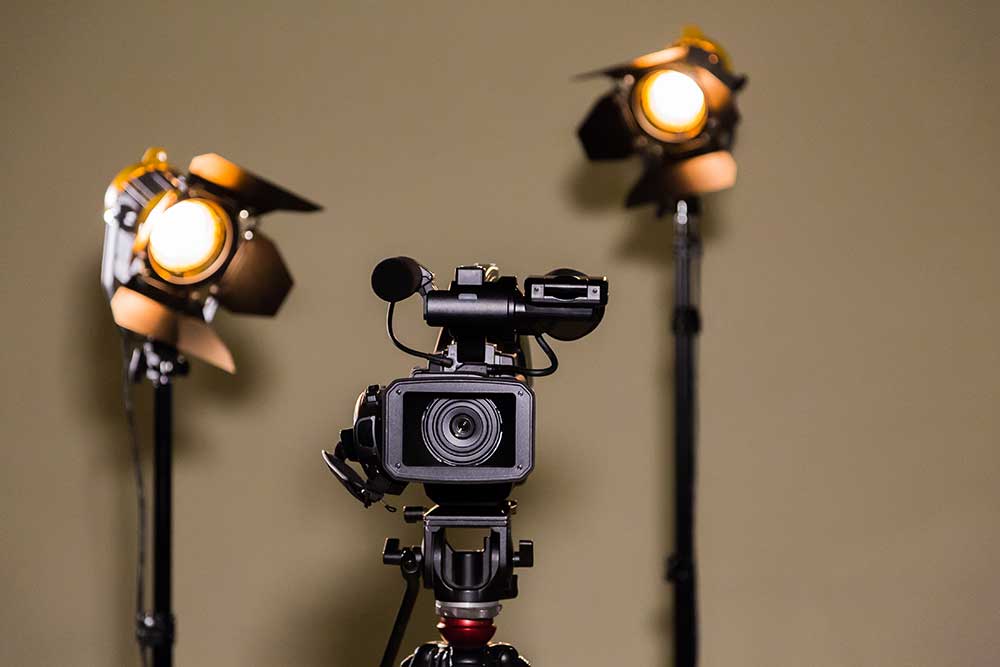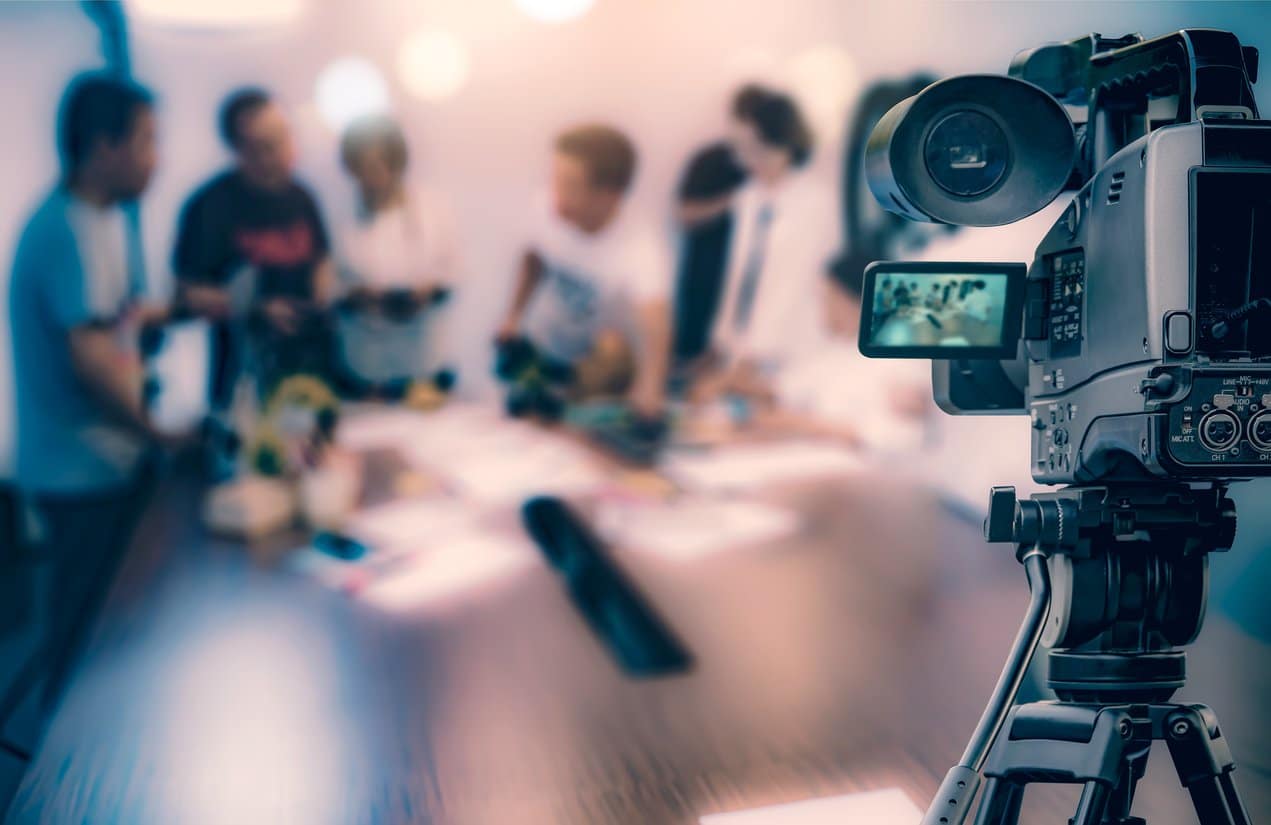The Duty of Legal Videography in Depositions and Trials
Lawful videography has emerged as an important tool in both depositions and trials, offering a diverse technique to documenting witness statements. As lawful specialists significantly recognize its worth, it prompts a deeper evaluation of exactly how these visual documents can influence juror perceptions and trial outcomes.

Relevance of Lawful Videography
Legal videography plays a pivotal role in the paperwork and discussion of depositions and tests. This specific field combines technical abilities with legal expertise to develop a trustworthy record of process that can dramatically influence instance outcomes. The visual element of lawful videography boosts the understanding of witness testament, allowing jurors and judges to observe not just the talked words but likewise the attitude, emotions, and body language of the witnesses.
Furthermore, legal videography offers an objective account of events, minimizing the capacity for misconception that can accompany written transcripts alone. This visual paperwork serves as a crucial tool during trial discussions, facilitating a more clear and even more influential narrative for both plaintiffs and offenders. Furthermore, the capability to replay video segments throughout court procedures makes it possible for legal groups to emphasize vital points, strengthening their arguments successfully.
The relevance of legal videography extends past the court room; it also plays a vital function in preserving proof for future reference, whether for appeals or additional lawful action. Its assimilation into the lawful process is important for ensuring a reasonable and accurate representation of the facts, inevitably contributing to the pursuit of justice.

Process of Legal Videography
While catching the subtleties of depositions and trials, the procedure of legal videography includes numerous critical steps that ensure high-grade, precise recordings. A professional legal videographer prepares by evaluating the case products and understanding the details demands of the deposition or trial. This preparation includes familiarizing themselves with the individuals and the context, which aids in recording important details.
On the day of the recording, the videographer establishes the required tools, which commonly consists of high-definition video cameras, microphones, and proper illumination. Making sure optimal angles and sound quality is important, as it straight influences the performance of the recording. The videographer connects with attorneys and individuals to establish procedures, ensuring that every person understands the recording procedure.
During the deposition or test, the videographer meticulously tape-records the proceedings, paying attention to both verbal and non-verbal cues. This includes recording the demeanor and responses of witnesses and attorneys. After the session concludes, the videographer may edit the video for quality and compliance with legal criteria, creating an end product that accurately reflects the process for future recommendation and use in lawful contexts.
Benefits in Depositions
The unification of videography in depositions uses various benefits that improve the overall procedure of gathering proof. One main benefit is the capability to capture witness testaments with visual and acoustic fidelity, giving a much more accurate representation of the witness's disposition, tone, and body movement. This multidimensional method permits attorneys and courts to assess credibility better than typical written transcripts alone.
In addition, videographed depositions serve as an effective device for protecting testament. Should a witness come to be unavailable for test, their recorded deposition can be played in court, guaranteeing that their proof remains easily accessible and pertinent. This aspect substantially lowers the danger of losing critical details that can impact situation end results.

Finally, videography improves the general expertise of the deposition procedure, instilling self-confidence in customers relating to the thoroughness of their legal depiction (legal videography). By leveraging technology, lawyers can dramatically boost the performance of depositions
Influence On Tests
In numerous trials, the combination of videography can considerably affect the discussion of proof and the jury's perception. Lawful videography catches witness statements and essential proof in a dynamic layout, permitting jurors to engage with the product on numerous levels. This visual component enhances the narration element of a trial, giving context and emotional resonance that typical text-based proof may do not have.
In addition, video recordings can work as effective tools for impeachment throughout interrogation. When discrepancies emerge between a witness's prior declarations and their court testimony, video clip evidence gives an objective referral that can persuade jurors' opinions. This immediacy and clearness can bolster the reliability of an event's narrative while at the same time threatening opposing disagreements.

Future Trends in Legal Videography
As we look towards the future of legal videography, several arising fads assure to improve its duty within the court room. One substantial trend is the integration of expert system (AI) in video evaluation and editing and enhancing. AI can simplify the procedure of recognizing crucial minutes in tape-recorded depositions, permitting lawyers to promptly access pertinent official statement material, consequently improving efficiency in case prep work.
Furthermore, the increase of virtual truth (VR) and enhanced reality (AR) modern technologies is anticipated to transform how jurors experience proof. legal videography. By submersing jurors in a simulated setting, these innovations can give a much more profound understanding of complex circumstances, causing more enlightened considerations
Furthermore, the raising need for remote depositions, accelerated by the COVID-19 pandemic, will likely continue. Lawful videographers will require to adapt to brand-new software program and platforms to ensure high-quality recordings in digital settings.
Last but not least, the growing focus on data safety will certainly necessitate more stringent protocols for saving and sharing video proof. As the legal landscape advances, legal videographers need to stay abreast of these browse around these guys fads to maintain their importance and efficiency in the judicial procedure.
Conclusion
In recap, legal videography serves a crucial function in the judicial procedure, boosting the integrity of depositions and trials. As innovation continues to progress, legal videography is positioned to more change its duty within the lawful landscape.
Comments on “Affordable Legal Videography Solutions for Cases.”